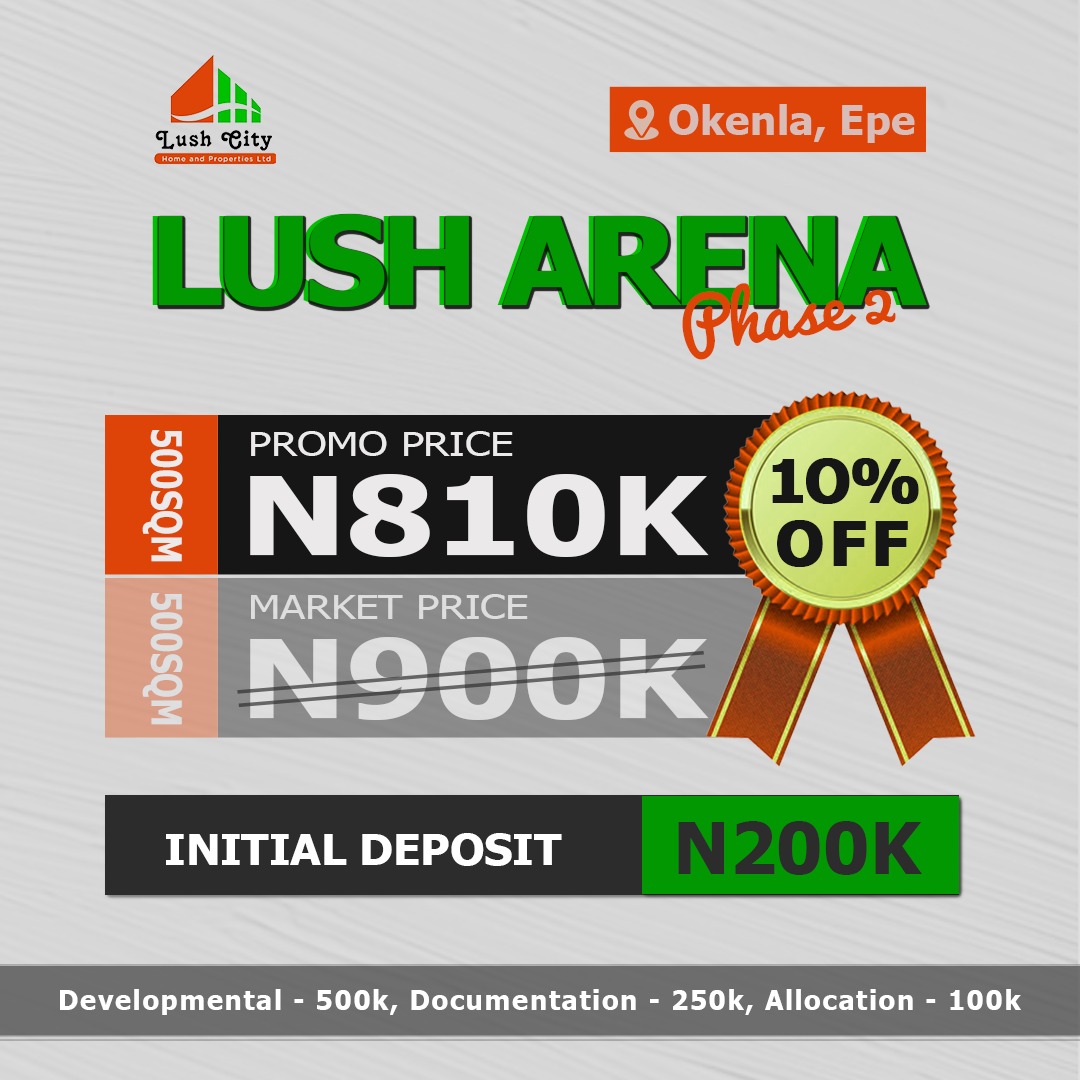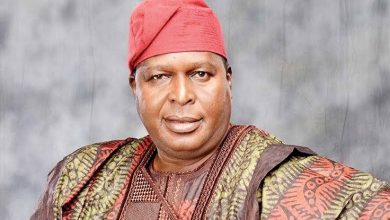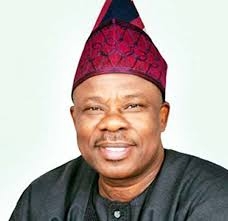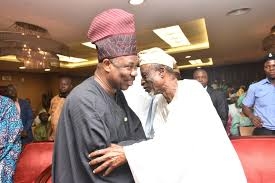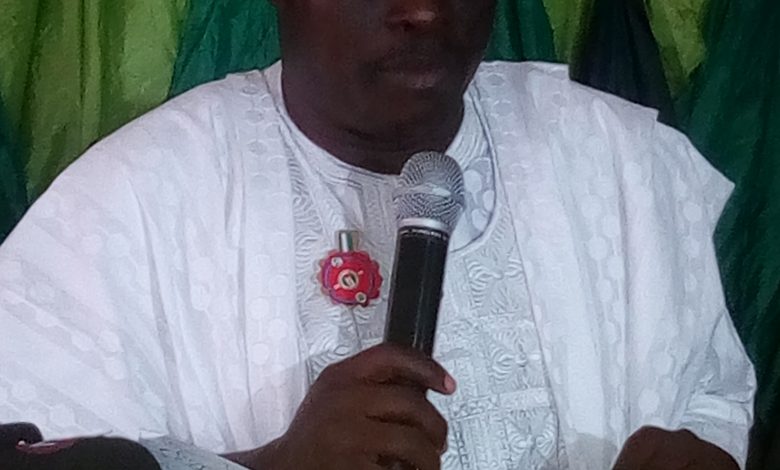
For the Record: ADDRESS BY RESIDENT ELECTORAL COMMISSIONER (REC) INEC OYO STATE, BARR. MUTIU AGBOKE @ 2018 OGUN STATE NUJ ANNUAL PRESS WEEK WITH THE THEME “THE MEDIA AND 2019 GENERAL ELECTIONS”, HELD ON 18TH DECEMBER 2018 IN ABEOKUTA.
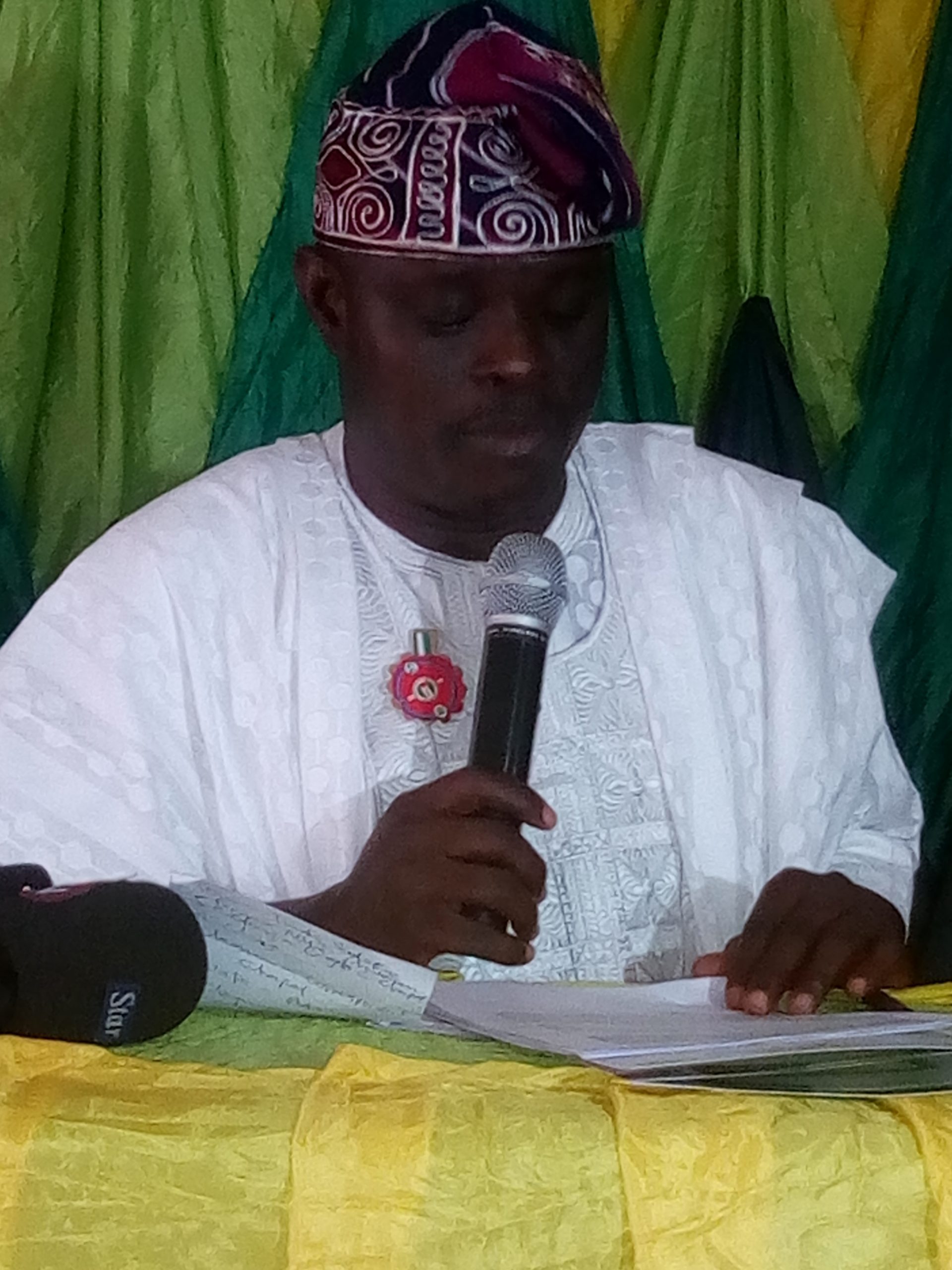
The Role of the Media
The contributions of the media towards the smooth conduct of 2019 general elections cannot be over-emphasized. Media have
prominent roles to play in order for the Commission and the country at large to achieve success in the forthcoming 2019 general elections. For the purpose of this paper, I will summarize the roles of the media with three sub-headings; media as an informant, as a watchdog, as a platform and public voice.
Media as an informant
Almost all citizens get their news and information from the Media and by extension online and other social media platforms. However, traditional media often shape how we perceive, interpret and observe political activities, election leverages and other political events. Hence, it plays important role in the campaign and election process. The role of the media as an informant cut across all the three phases of the electoral cycle of the Commission i.e. Pre-Election Day, Election Day and Post-Election Day.
Electoral information such as the date of election, number of political parties contesting for an election, flag bearers of political parties and other activities of the Commission are the duties of the media to inform the public.
However, these roles pose a special challenge for the media because they must remain neutral and objective in order to properly educate the electorate. Media coverage before, during and after elections should be unbiased; reporting must not favour one candidate or point of view of a particular candidate. It is also important to mention that the media plays a major role of educating the electorate especially in the area of identification of political parties’ logo, which has indeed posed a major challenge in the recent past. Most of the electorate cannot identify their political parties’ logo; hence the need for the media to take up the challenge of educating the electorate in this regard, political parties inclusive.
Media as a Watch Dog
The media as the fourth estate of the realm have much more to do than recording and reporting electoral activities. The media being the watchdog and as such must ensure that government and INEC inclusive are held accountable. The watchdog role of the media should include that ability to guide the interest of the electorate. In doing this, it can help warn against the destabilizing factors and warn the electorate against those using them as political thugs and other vices.
Media as a Platform and Public Voice
The Media provide an outlet for political parties and candidates to communicate their views and messages to the voting public and also giving the people voice to express their thoughts about the conduct and outcome of an election. Media is one of the means by which a candidate can present his/her manifestoes and ideas to the populace. In this role, media impact our political views and opinions. Public opinions are usually sharpened using the information provided through this platform.
Media and 2019 General Elections
Distinguished, ladies and gentlemen of the press, as we commence campaign and other electoral activities, let me enjoin the media, to partner with INEC in providing information on its plans for elections. As at today, the planning process for 2019 general elections have been concluded with the 2017-2021 Strategic Plan and Strategic Programme of Action, the Election Project Plan and the formation of the Election Monitoring and Support Center.
Given the nature of political contests in our country, inaccurate or biased reports could endanger peace, leading to violence before, during or after elections. The concluded Governorship election in Ekiti State, where the former Governor went to announce the election results at the State Broadcast media before the electoral body announced the results of the election, quickly comes to mind in this regard.
As the 2019 General Elections draw near, media practitioners need to be conscious and sensitive in their reports as the power of the media is seen during electoral processes especially at elections. The abuse of this power has hitherto led to dire consequences in the previous elections in the country. Therefore, the essence of conflict-sensitive election reporting is to navigate various circumstances of conflict in election to prevent outbreak of violence. It is also to ensure that peaceful solutions are quickly found where such outbreaks become inevitable as they often do.
It is possible that 2019 general elections would be one of the most intense- media focused events in our political history. Stakeholders are likely to rely on media. For this reason, combating hate speeches, fake news and other forms of reporting likely to inflame passion and trigger crisis will be of critical importance to the peaceful conduct of the elections. Journalists can be conflict sensitive by not casting headlines or reporting stories that could lead to violence. The need to fact-check rumours, hot words, arms movement, protests, inciting hate speeches comments, fake news on social media. Just recently on social media was the report that, the Commission has given another opportunity for Permanent Voter Cards (PVCs) registration starting from the 2nd to 10th December 2018. Such fake news should be avoided by the media. Unfortunately, there is little or no control over social media platform. This is rather disheartening and worrisome to hear. Fake news is a menace that even social media platform owners don’t know how to deal with. Politicians would use opportunity to plant and spread malicious stories.
Some of the ways the Commission has been dealing with the challenges of fake news is through massive sensitization, public awareness, and timely release of information and access to genuine sources of information.
The media need to expose politicians and political parties intending to cause electoral violence through hate speeches. You can always borrow a leaf from the media organizations in Ghana that published names of political parties and politicians engaging in hate speeches. This is one of the measures that can help the country to address the issue of hate speeches among our political class.
Gentlemen of the press, it will however not be out of place to enjoin media in organizing workshops or seminars with the intent of training journalists on how to report accurately on electoral matters. The media have both a duty to ensure effective coverage of the electoral process and protect voters’ rights to the fullest and accurate information, participate in debates and dialogues on electoral process and engagement with stakeholders in the entire process. There is the need to organize capacity building workshops for journalists and media professionals in order to enhance dialogue about the ethics and standards of the profession as well as the working conditions.
The media should also protect the rights of political parties and candidates to have access to and use media platforms for public engagement. Similarly, the electoral body ought to rely on the media as partner in delivery of credible elections. In general terms, therefore, media should serve as communicators and information channels for voters, political parties, candidates, electoral body, civil society organizations and other stakeholders in the electoral process, as well as informal regulators of the entire process. Journalists are also expected to play key roles in helping the society to better understand the sources of violence/ fake news hate speeches and how to promote more inclusive and tolerant societies especially during the elections periods.
Media should provide a level playing field for all political parties in their reportage and programming, focus more on issues and less on personalities in order to assist the electorate to make informed choices during elections.
The Nigerian Election Debate Group fixing January 19th 2019 for Presidential Candidates and Vice-President Debate for 18th December 2018, which of course falls into this day is a welcome development. Plans are on to forward to the 9th National Assembly a fresh bill for the establishment of a National Commission for Presidential Debate that will make it mandatory for Presidential Candidates to engage in debates ahead of Presidential elections by Broadcasting Organizations of Nigeria (BON).
The media should give more attention to rural areas in the coverage of elections as rural areas must be given attention because the bulk of their votes do come from such places. If they are not well informed, they may not make the right decision during elections.
The Commission has also introduced series of innovations in the smooth conduct of 2019 general elections. The use of enhanced Smart Card Readers (SCRs) using Permanent Voter Cards (PVCs) as tools. INEC currently uses PVC to facilitate voting activities. Smart Card Readers (SCRs) are used to determine the authenticity of PVC and access voter information.Eligible voters are allowed to cast their votes and .its beauty is that it perfectly complements the use of ballot papers. The tracking of our operational vehicles during elections, simultaneous accreditation and voting, electronic collation and transmission of results, monitoring the voting processes, the banning of the use of mobile phones within the radius of voting cubicle, cancellation of incident forms. The recent signing of Memorandum of Understanding (MoU) with the Nigerian Union of Road Transport Workers (NURTW), Road Transport Employers Association of Nigeria (RTEAN) and National Association of Road Transport Owners (NARTO) in Abuja by the Commission is another step in the right direction to enhance smooth logistic arrangement and continuous engagement with all critical stakeholders are some of the innovations introduced to ensure smooth conduct of free, fair and credible elections in 2019.
Under the umbrella of Joint National Association of Persons with Disability (JONAPWD), persons with disabilities (PWDs) are not left out of the scheme of things, as the Commission has made adequate provisions for their active participation in the electoral process. The elderly, pregnant women, the albinos and other people with one disability or the other are to be given priority during election periods. There is provision of braille ballot papers for the blind and magnifying glasses for the albinos.
Conclusion
I urge members of the pen profession to safeguard the media organizations from the menace and havoc being caused on regular basis by the pseudo-media practitioners. Such people are quacks devoid of professional training and ethics. Such individuals or groups of them report INEC activities without information and clarification or mischievously misrepresent the position of the Commission on issues of national interest bordering on electioneering process. Such journalists so called are very dangerous to a successful 2019 general elections. The leadership of NUJ has a lot to do in this regard towards the regulation of this noble profession.
The purpose of an election is not just to select a winner but to announce the loser and their supporter that they lost. Trust in the voting process is therefore an essential element to any voting system. Media in this regard has great role to play in bringing about the lasting democracy we all yearn for ahead of 2019 General Elections.
Therefore for the 2019 to be credible and successful, the consistent interface and cooperation between Nigerian journalist and INEC, is very imperative. Journalists, under the umbrella body of NUJ and INEC must always be on the same page on matters or policies of the Commission.
Gentlemen of the pen profession, please note that election and electioneering process are in the class of their own. Nobody can understand them without requisite knowledge and information. Speculation, misinformation, misinterpretation and false reporting should be avoided.
On this note, I want to conclude that, for the Commission to conduct credible, free and fair 2019 general elections, it is the collective effort of all stakeholders. The media have greater roles to play in order to foster transparency in the dissemination of important electoral information. The media should ensure that political parties abstain from all forms of hate speeches, violence, vote buying/selling, so that collectively the Commission will be able to ensure credible, free and fair 2019 general elections. Remember, your vote is your power as no PVC, no voting in the forthcoming general elections. So, get your PVC today. I thank you all for listening.


